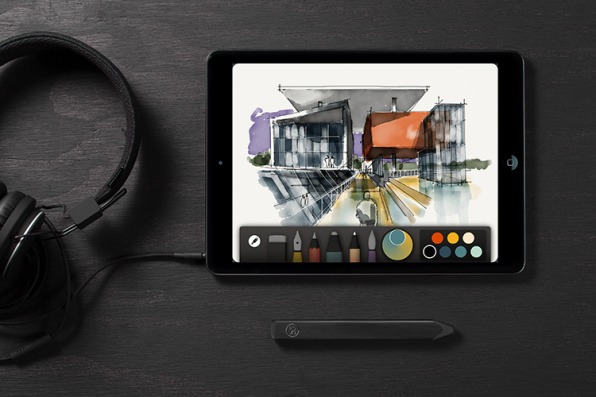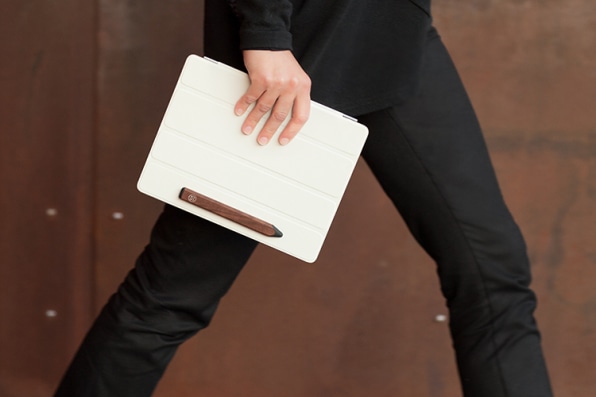Best Paper For Pencil Drawing
The iPad never came with a stylus. Steve Jobs's famous quip was, "God gave us 10 styluses–let's not invent another." In some ways the quote epitomizes Apple's legacy of design simplicity, and in some ways, its stubbornness. (Because frankly, if fingers were the perfect drawing tool, Man wouldn't have had to finish the job God started and invent pens–or for that matter, iPads.)
Now, just as we've all become resigned to finger painting on touch screens, FiftyThree–creators of the beloved drawing app Paper–are releasing a groundbreaking stylus two years in the making. Its name is simply "Pencil."
"If you look at analogies, the desktop was a typewriter. The iPad was like a legal pad, or paper. And the best thing to work on paper is a pencil," says FiftyThree founder Georg Petschnigg. "Now, the illusion of working on a piece of paper is complete."
At first glance, the Pencil is nothing more than a $50 chunk of walnut or aluminum. And at second glance, it's nothing more than a $50 chunk of walnut or aluminum. But when pressed to the iPad's screen, internal Bluetooth circuitry syncs Paper with its Pencil (no annoying pairing screens required).

From here, all sorts of subtle magic happens. You can draw, and flipping the Pencil around, you can erase. It can function as any stylus would, but when paired with Paper it also automatically unlocks all of the app's brush tools. Normally these each cost a few bucks apiece and require in-app purchasing, but FiftyThree realized that this micro-transaction model, while effective for consumers, didn't scale so well to schools and businesses. Now, that cost is wrapped into the device so that buying this analog tool automatically unlocks all digital content.
This seamless Paper/Pencil integration is thanks largely to the work of industrial designers John Harris and John Ikeda–both of whom were formerly part of the Xbox One team, specializing on the Kinect. Their enthusiasm for their Pencil is absolutely infectious, and they explained to us that Pencil's best trick–that Bluetooth pairing by touching the screen–is only possibly because they hid a specially engineered switch inside Pencil's tip. That switch is a 14 carat gold contact, activated through the compression of a torsional spring–which can manage the force coming from any angle the Pencil might strike the screen–meaning users won't have to use the Pencil at a perfect 90-degree angle to turn the thing on.
When activated, Pencil is not just a stick for drawing; it's a gateway to multimodal interaction. You can draw something, sure, but you can also then tweak what you've drawn with the fingers of your non-dominant hand, smearing the image like you might charcoal, or pinch-to-zooming to activate an impromptu magnifying glass.

This fluid interplay isn't a happy accident; it's the result of extremely honed algorithms that track size, speed, and inertia to distinguish the Pencil tip from its rear eraser from a finger from your palm resting on the screen, all without perceivable delay. Petschnigg goes so far as to call Paper's evolved interface "probabilistic," making extremely educated guesses about what is touching the screen each moment, and pulling up the right interface response to match.
But frankly, almost everything in this article is geek trivia. Much like Paper, the genius behind Pencil is what you don't see–all that invisible effort that makes it just work. And this invisible effort is something that FiftyThree is going to bring to third parties: Pencil will have an SDK so that third-party apps can support the hardware just as perfectly as Paper. Think about that opportunity: Pencil could position itself as the mouse of the tablet age–or maybe, more aptly, the pencil of the tablet age.
Pencils can be pre-ordered now in Graphite ($50) and Walnut ($60) for December delivery.
Best Paper For Pencil Drawing
Source: https://www.fastcompany.com/3021788/a-stylus-thats-like-a-pencil-on-steroids
Posted by: williamshicess.blogspot.com

0 Response to "Best Paper For Pencil Drawing"
Post a Comment